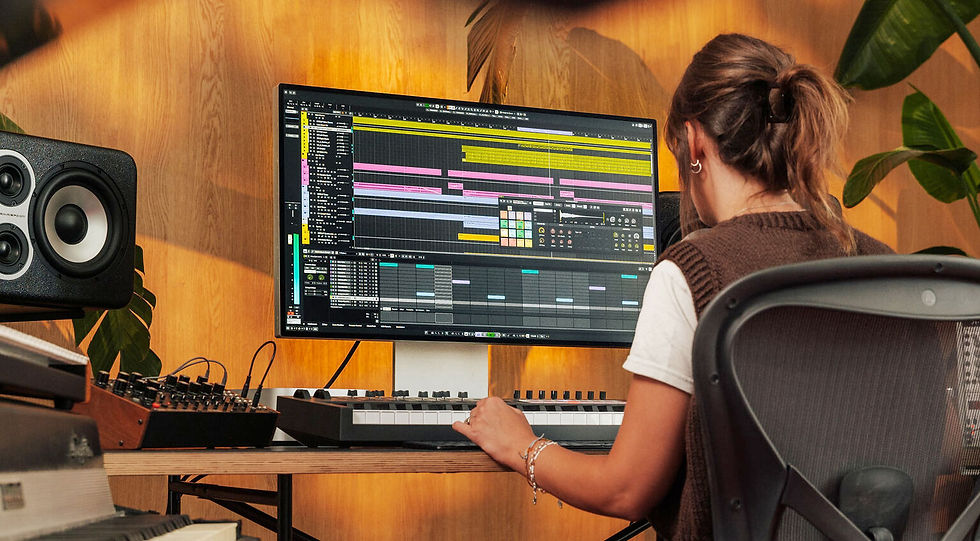8 Tips for Transition From DJ to Producer
- SDA

- Dec 15, 2015
- 3 min read

Transitioning from DJ to producer can seem like a massive undertaking, so it’s important to break it down into smaller steps so you can move at your own pace. Below are some useful tips to help you through the process.
1- Trust your ear. If you’ve been DJing for a few years, you probably have a good sense of what works in your sets and what doesn’t. Your taste in music is what makes you unique as a DJ, so apply it to your production. Be the change you want to see in the (club) world.
2- Produce mashups. Mashups are a great way to learn the basics of producing with Cubase Pro or Ableton Live. They teach you how to time stretch, EQ, edit tracks, and automate. Once you’ve made a couple of blends, try adding some extra elements to make them stand out.
3- Recreate other people’s tracks. The idea isn’t to copy other people’s work, but to help you better understand your production equipment. If you’ve never made a beat before, a synthesizer’s knobs and buttons can be as confusing as the cockpit controls in an airplane. Watching a tutorial on recreating a specific sound will help familiarize you with your equipment.
4- Remix other people’s tracks. Reach out to established producers and offer to remix their tracks “on spec,” meaning that if they don’t like it, they don’t have to use it. If they accept your offer, give it your best and shot and don’t be afraid to fail. The worst case scenario is that you gain experience and get feedback from an established producer. Another approach is to remix someone’s track without asking for permission and send it to them when you’re done. They might like it and make it official. Keep in mind that you’re probably not going to get a response from an artist like Calvin Harris, so focus on producers who are accessible.
5- Collaborate with others. No matter who you are, there’s always something that you can learn from others. That said, collaborations are a fantastic way to learn tips and techniques and share ideas. Chances are, you’re not the only DJ in your city that’s trying to elevate your career by producing.
6- Don’t worry about having a manager. A common mistake among new producers is thinking that all they need is a manager. Instead, newcomers should focus on mastering their craft and getting heard. Great music spreads, and when the time is right, a young and hungry Ari Gold will discover you. So stop dreaming and start working.
7- Test your tracks in the club. One of the biggest advantages of being both a DJ and a producer is that you can test your tracks in front of live audiences before releasing them. Doing so helps you identify issues that you didn’t notice in the studio and hear how your tracks sound in the context of a set. You can even blend your instrumentals with familiar acapellas to play it safe. Either way, don’t be disheartened if your songs don’t sound right on the first play; pay attention to the crowd response and think about what needs to be improved.
8- Finish what you start. Your first few projects are probably going to suck, but that’s okay. It’s easy to compare your project to a pro’s and feel disheartened, but remember that everyone started at the bottom. Instead of leaving your songs as half finished pieces of sh#t, make them into full-length pieces of sh#t. Complete your songs, mix and master them to the best of your ability, and share them with your peers. The feeling of accomplishment that comes with completing a project will motivate you to finish the next one. Once you’ve got a few songs under your belt, then you can choose to scrap something if it’s not up to par. But until then, finish everything.
Ckeck out the special offer of the music production training program that we offer at this time.









